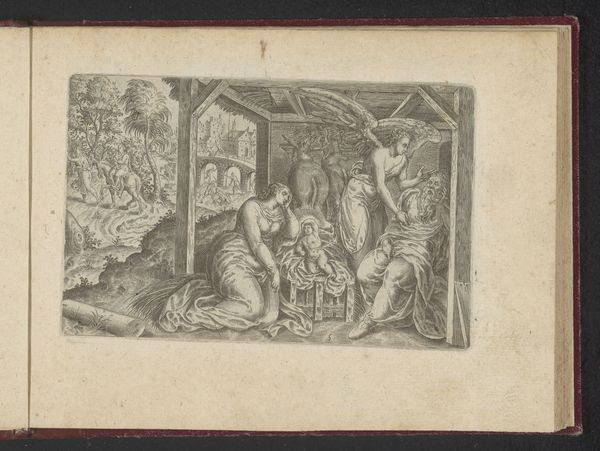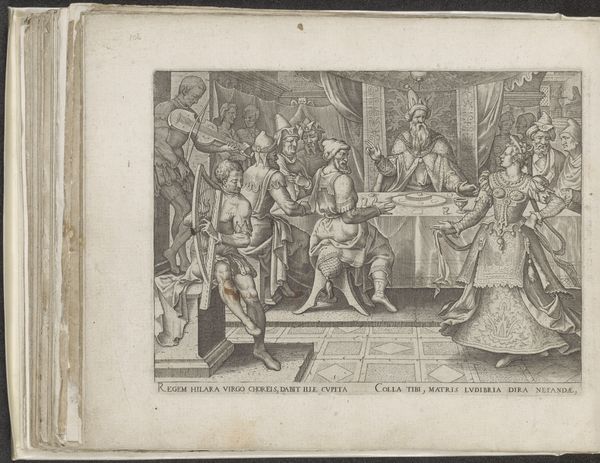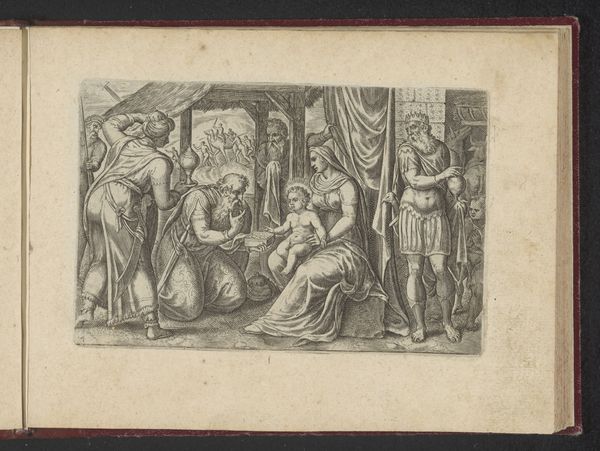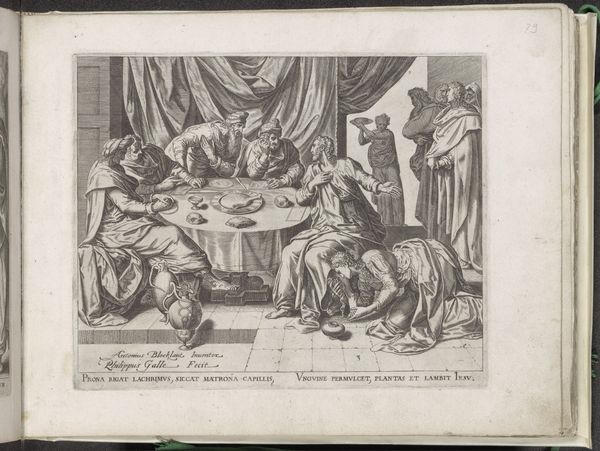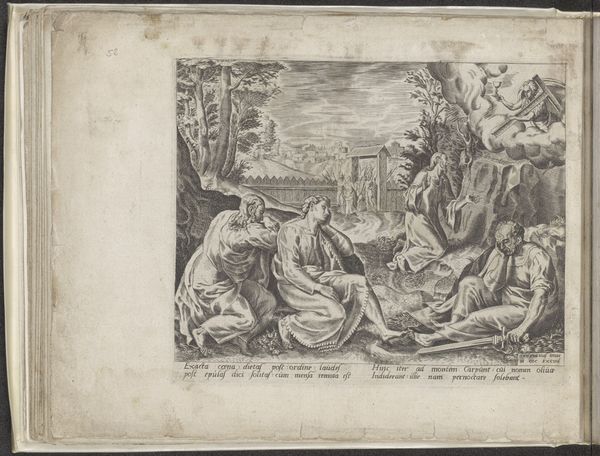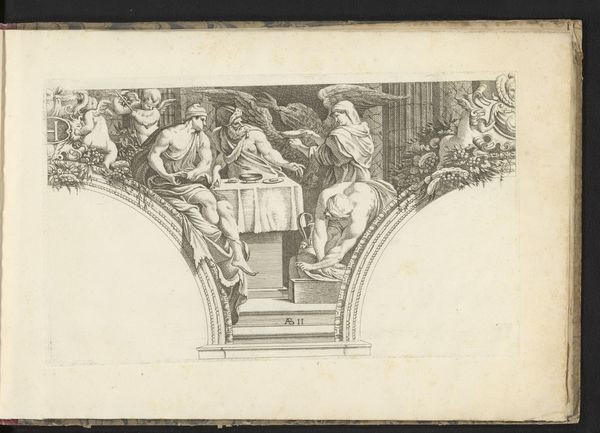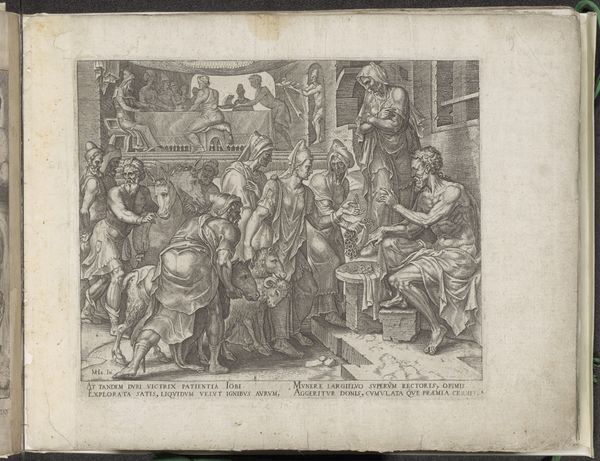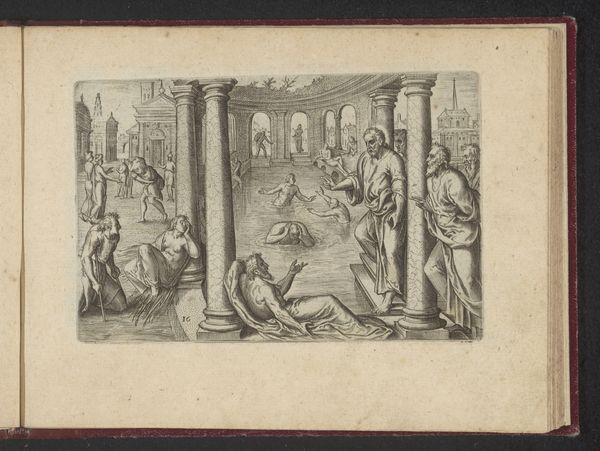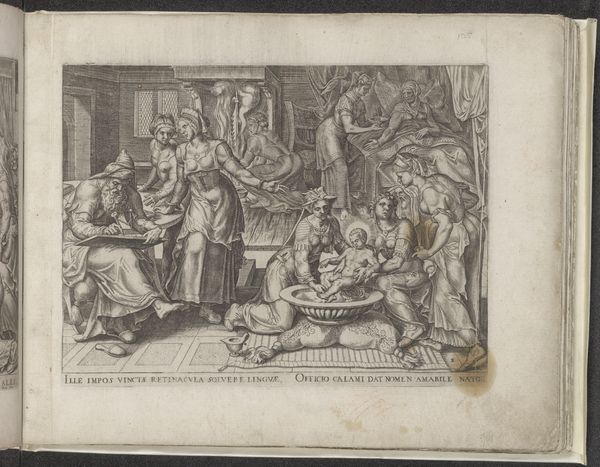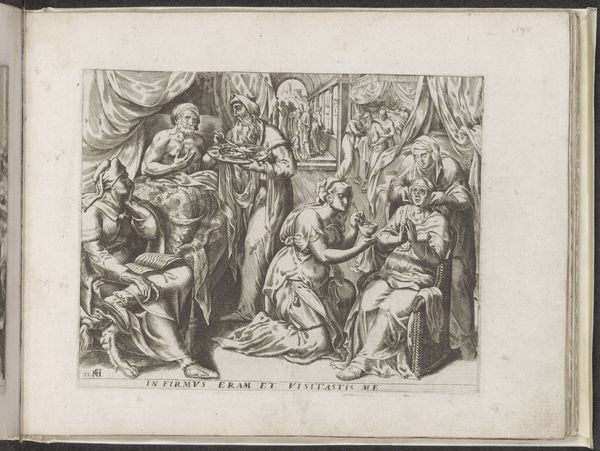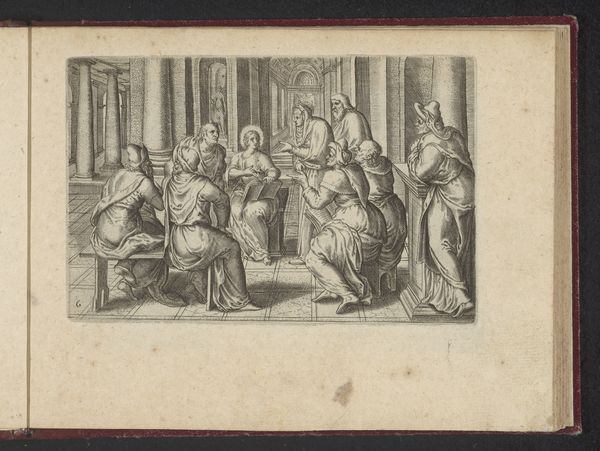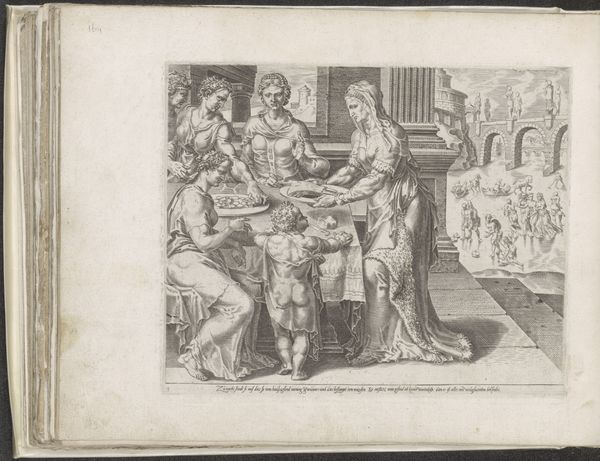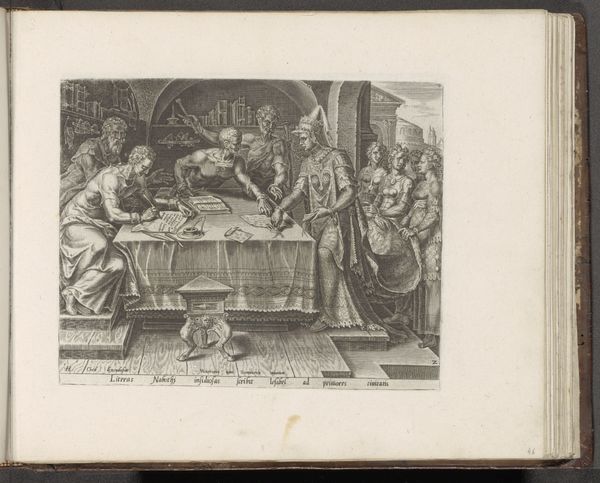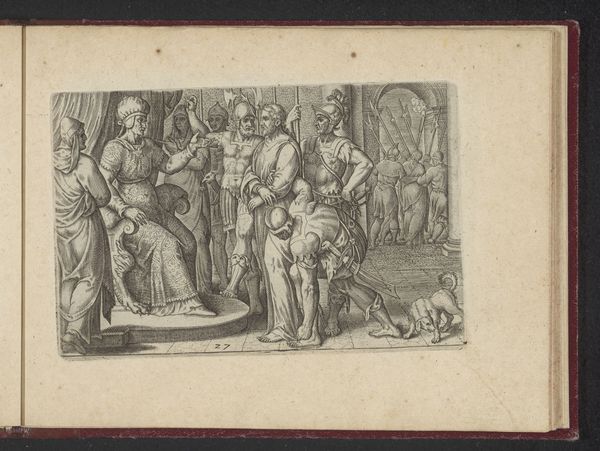
drawing, ink, engraving
#
drawing
#
aged paper
#
toned paper
#
narrative-art
#
pen sketch
#
sketch book
#
personal sketchbook
#
ink
#
pen-ink sketch
#
ink colored
#
pen work
#
sketchbook drawing
#
genre-painting
#
history-painting
#
northern-renaissance
#
sketchbook art
#
engraving
Dimensions: height 92 mm, width 139 mm, height 137 mm, width 183 mm
Copyright: Rijks Museum: Open Domain
Philips Galle engraved this print, "Maria Magdalena zalft de voeten van Christus," sometime before his death in 1612. The act of anointing Christ's feet, dominated by gestures of humility and reverence, carries rich symbolism. We see Mary Magdalene, a figure often associated with repentance, kneeling to wash Christ’s feet, a gesture of profound submission and spiritual cleansing. Observe how this posture of supplication, of being at someone's feet, echoes through centuries in depictions of monarchs receiving tribute or religious figures being venerated. The act of washing feet transcends its literal meaning, becoming a potent symbol of humility and service. Consider its resonance in earlier Roman traditions where conquered peoples would kneel before their victors. Over time, this gesture evolved, imbued with Christian values of forgiveness and redemption. The emotional power of this image lies in its ability to tap into our collective memory, reminding us of the human capacity for both sin and profound transformation. The cyclical recurrence of this symbol, from ancient rituals to religious art, reflects our enduring fascination with themes of power, humility, and spiritual purification. It’s a testament to how certain gestures and symbols can continually resurface, adapting and accumulating new layers of meaning across different eras.
Comments
No comments
Be the first to comment and join the conversation on the ultimate creative platform.
